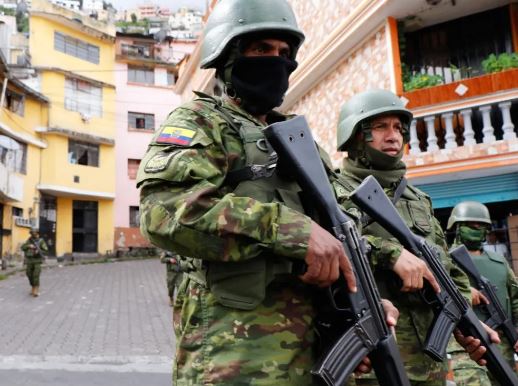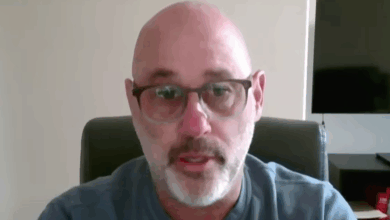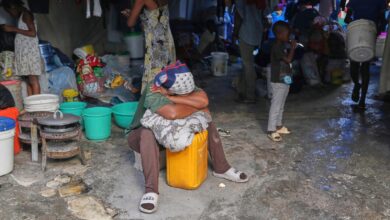Ecuador’s Battle Against Drug Cartels: A New Internal Armed Conflict

In an unprecedented move, Ecuador’s President Noboa has declared an ‘internal armed conflict’ against drug cartels and criminal gangs, deploying 22,000 soldiers in a major offensive.
A Bold Military Strategy:
President Noboa’s decision to deploy a substantial military force signifies a dramatic escalation in the government’s approach to combating drug trafficking and organized crime. This marks a shift from traditional law enforcement methods to a more militarized strategy.
The Scope of the Conflict:
Ecuador faces a complex challenge as drug cartels and criminal gangs have deeply infiltrated various aspects of society. The conflict is not just about law enforcement but also involves addressing socio-economic issues that fuel the drug trade.
International Implications:
The situation in Ecuador has broader implications for the region, particularly for neighboring countries like Colombia and Peru. There are concerns about the potential for cross-border instability and the impact on international drug trafficking routes.
Human Rights Concerns:
The deployment of the military in domestic law enforcement raises significant human rights concerns. There’s apprehension about potential excesses and the impact on civilian populations, especially in areas with a strong presence of drug cartels.
Impact on Civil Society:
The conflict is likely to have profound effects on Ecuadorian society, from displacement of communities to increased violence. The government faces the challenge of ensuring security while protecting civil liberties and human rights.
The Way Forward:
Addressing the root causes of the drug trade, such as poverty and lack of opportunities, is crucial for a long-term solution. Alongside military action, there’s a need for comprehensive social and economic policies.
International Cooperation:
Ecuador’s fight against drug cartels may require international support and cooperation, particularly in terms of intelligence sharing, law enforcement collaboration, and addressing the global demand for narcotics.
This article provides an overview of Ecuador’s new approach to tackling drug cartels and the implications of this conflict. If you’d like more information on any specific aspect of this issue, please let me know, Paulette!
Published On January 14, 2024
In an unprecedented move, Ecuador’s President Noboa has declared an ‘internal armed conflict’ against drug cartels and criminal gangs, deploying 22,000 soldiers in a major offensive.
A Bold Military Strategy:
President Noboa’s decision to deploy a substantial military force signifies a dramatic escalation in the government’s approach to combating drug trafficking and organized crime. This marks a shift from traditional law enforcement methods to a more militarized strategy.
The Scope of the Conflict:
Ecuador faces a complex challenge as drug cartels and criminal gangs have deeply infiltrated various aspects of society. The conflict is not just about law enforcement but also involves addressing socio-economic issues that fuel the drug trade.
International Implications:
The situation in Ecuador has broader implications for the region, particularly for neighboring countries like Colombia and Peru. There are concerns about the potential for cross-border instability and the impact on international drug trafficking routes.
Human Rights Concerns:
The deployment of the military in domestic law enforcement raises significant human rights concerns. There’s apprehension about potential excesses and the impact on civilian populations, especially in areas with a strong presence of drug cartels.
Impact on Civil Society:
The conflict is likely to have profound effects on Ecuadorian society, from displacement of communities to increased violence. The government faces the challenge of ensuring security while protecting civil liberties and human rights.
The Way Forward:
Addressing the root causes of the drug trade, such as poverty and lack of opportunities, is crucial for a long-term solution. Alongside military action, there’s a need for comprehensive social and economic policies.
International Cooperation:
Ecuador’s fight against drug cartels may require international support and cooperation, particularly in terms of intelligence sharing, law enforcement collaboration, and addressing the global demand for narcotics.





